The protester's guide to social media
The revolution will be Tweeted, Facebooked, Reddit-ed, Vined and Instagrammed
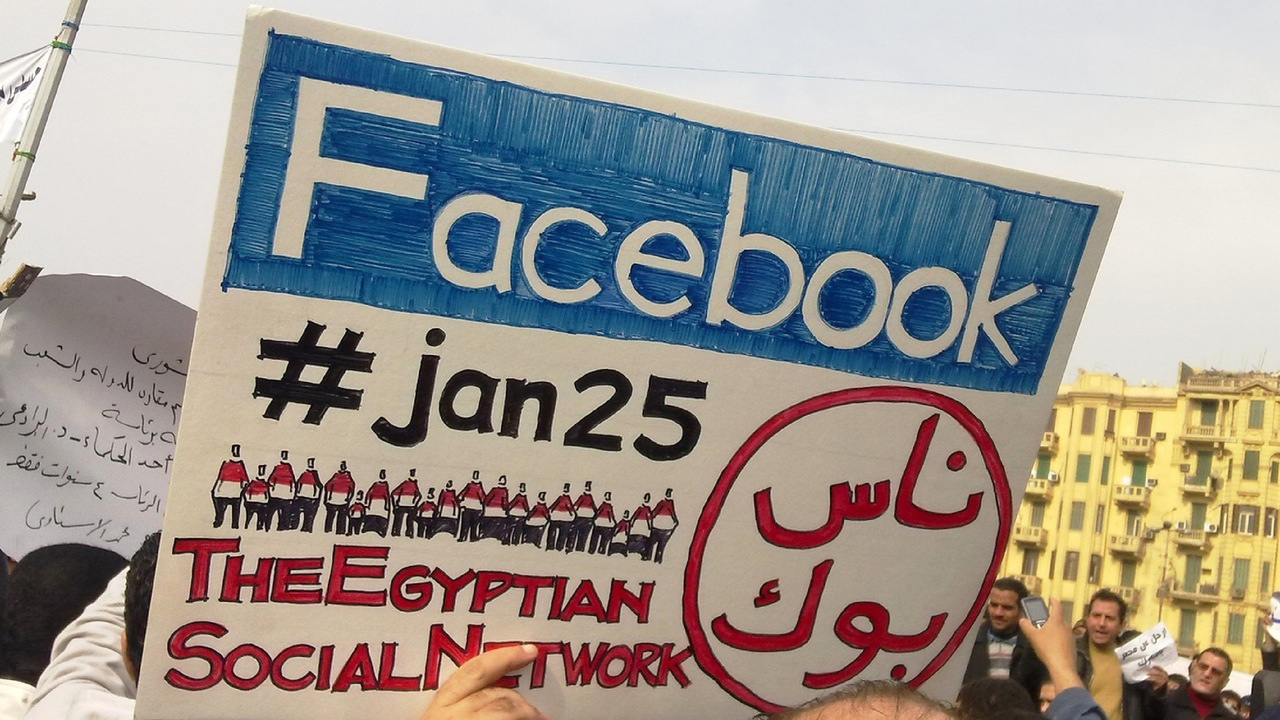
Sign up for breaking news, reviews, opinion, top tech deals, and more.
You are now subscribed
Your newsletter sign-up was successful
From the recent Twitterstorms surrounding events in Ferguson, Missouri, and the killing of US journalist James Foley in Syria, to the Israel-Palestine conflict, political activism and protest is now all about getting the message out using social media.
Its importance as a political tool on the streets was first noticed during the Arab Spring in 2011, when Twitter and Facebook were used by protesters in Egypt, Tunisia and Libya to respond to real-time events on the ground. Now it's used by all kinds of people in all kinds of scenarios; all you need is a smartphone.
"The past six months have brought to light serious political, civil and global issues through the use of trending hashtags and social media amplification," says Will McInnes, CMO at Brandwatch. "Without social media, awareness movements and civil uprisings such as #BringBackOurGirls might not have garnered the attention of the mainstream mindset."
Going viral and creating the perfect storm on social media is the best way to get your cause recognised, but which platform should you be using, and what should you be using it for?
Popularity: 271 million monthly active users
Twitter is the 24-hour news channel of political activity and social movements. Accounts can be created in seconds, but really key to its success is its reliance on hashtags, which not only allows easy access to similarly themed posts, but also can fuel a movement's aims.
There's nothing quite like Twitter for spreading awareness of a cause. "From the various conflicts in the Middle East (#GazaUnderAttack and #FreePalestine), to the continued unrest in Ferguson, Missouri, and even social media campaigns like the ALS #IceBucketChallenge, Twitter remains the most unfettered and distributed platform for social sharing," says McInnes.
Sign up for breaking news, reviews, opinion, top tech deals, and more.
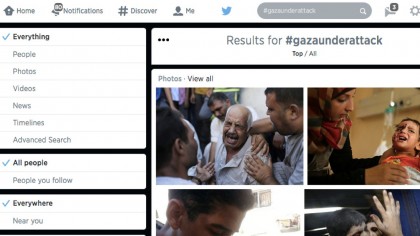
"In contrast to Facebook, Twitter has no stated filter on people's streams or on their global and local trends," says digital marketer Jamie Riddell, cofounder of a social media analytics platform BirdSong.
"Therefore if a topic gets a lot of attention it will be quicker to 'bubble up' into the wider consciousness, from where it can rapidly gain greater awareness."
However, with Twitter now censoring content based on your location, politicos could soon be searching for an alternative (#TwitterCensored). There's evidence that the Islamic State (IS) militants have left Twitter for independent server-based (and so non-censorable) social network Disapora.
There's another key reason why Twitter on its own is not enough for political activists; its lack of private group messaging and restriction to 140 characters makes it far less successful as an organisation platform.
Facebook & WhatsApp
Popularity: 1.32 billion monthly active users
Facebook is bigger than Twitter, but much stricter, with a real-name policy that could thwart renegades and revolutionaries. There's also no guarantee that your latest status update will be read by enough people without you paying to promote it. Facebook's increasingly random way of presenting its news feed devoid of chronology doesn't help.
"With the largest global audience, Facebook has the potential to be a central news source for breaking news and opinion," says Riddell. "However, Facebook's algorithms to define coverage may severely impact its growth as a breaking news network."
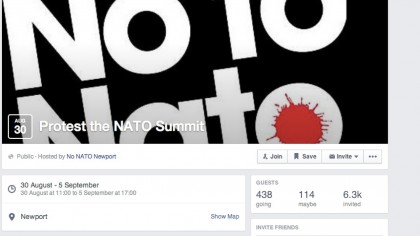
Without hashtags, Facebook is hard to navigate, though its private groups and Facebook Messenger make it much more suited to reliable, private one-to-one communication than Twitter. The Facebook 'Events' feature is frequently used by activists, too.
It's a similar case with WhatsApp, which Facebook spent US$16 billion on last February. WhatsApp was used recently in India by presidential candidates, reports Vice, largely because over 40 million people in the country use it.
Popularity: 3 million active users
There's revolt on Reddit, too. "Possibly the most intriguing social platform for protest/cause amplification is Reddit," says McInnes. "It's not the first site you think of when you hear the term 'social media platform', but it's definitely one of the richest."
Others agree that the voting-things-up-and-down community has a future in politics. "Reddit had a live feed on Ferguson maintained round the clock by 10 moderators," says Riddell. "The aim of this thread was to spread live awareness of updates from a range of sources including tweets and YouTube videos." There's all kinds of stuff up there, from police scanner reports and news articles to Tweets, Vine videos, and more.
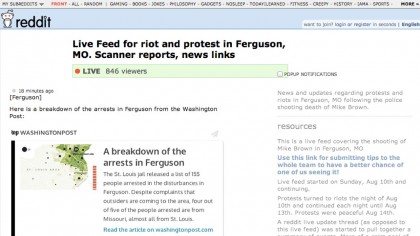
"Reddit is the melting pot of social media, and continues to be the platform to watch closely," says McInnes.
Reddit also has the benefit of its AMA (Ask Me Anything) threads, offering space for activists, politicians and those involved in an issue to express their views on whatever the Redditing populace might ask about. From big names like President Obama, to reporters and residents on the ground in places like Ferguson AMAs can be a tool for people to push their agenda, or answer the public's questions. Of course just because you ask doesn't mean you'll get an answer and hardball questions are often ignored.
Instagram and Vine
Popularity: 150 million & 40 million active users respectively
It's the ability of social media to present instant eye-witness accounts and even streamed TV-like coverage that is fuelling its use by protestors and political activists.
"Civilians on the ground in Ferguson are utilizing Instagram and Vine to share photos and videos that show the rioting and general chaos that is still persisting in the area," says McInnes. "On Instagram as of August 19 (at 1pm ET), there were 272,562 posts using #ferguson, 4,416 posts using #fergusonpolice, and 3,749 posts using #fergusonshooting. At the same time, videos on Vine using #ferguson totalled 14,200 and counting." Views of these posts will obviously be many times higher.
"The video capability of both of these social platforms, combined with the heavily visually-minded inclination of today's communication, has accelerated this regional issue onto a national and global level," says McInnes.
Google+
Popularity: 660 million active users
Google+ is becoming an important political tool, but really only for the political elite, who are queuing up to appear down with live streaming and webcasting technology to engage with citizens. Election debates have been hosted on Google Hangouts in Japan and India, while President Obama has a Google+ page and has taken part in Hangouts.
This is no by-product of technology; Google+ is actively promoting itself to political activists of all kinds.
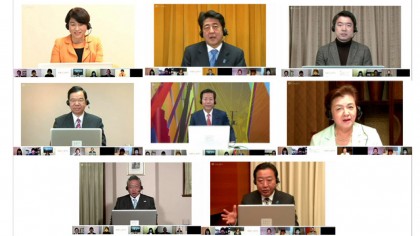
More covert users should consider if anything on Google is secure. It isn't according to Rupert Murdoch, whose News of the World was embroiled in the phone hacking scandal. He has used Twitter to say that, compared to the NSA, "Google has more data on all of us and uses it".
Ditto Google's YouTube, which British security officials may have "special access" to, according to some.
SnapChat, Whisper, Yik Yak and FireChat
Popularity: unknown
"While in its relative infancy, SnapChat has the potential to offer live updates from one to many sharing videos and photos," says Riddell of the disappearing instant messaging service that reportedly refused a Facebook offer of US$3 billion last year. "Film Director-cum-journalist Casey Neistat used Snapchat to share videos from Ferguson to his followers."
Anonymous 'online confessionals' have obvious attractions to anyone involved in political activism that doesn't want to be identified. The Whisper app lets users send anonymous messages to each other, but it also lets you filter 'confessions' by your location. Handy for covertly organising protests.
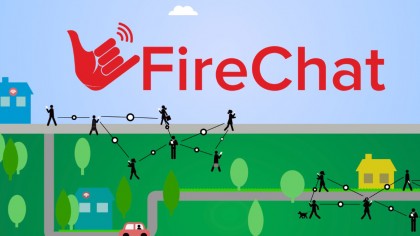
A similar app, Yik Yak, also centres on geographical location. "We do believe that Yik Yak could be a very powerful tool for protesters in foreign countries," said co-founder Brooks Buffington to the Daily Dot. "Our app not only allows people to easily connect with one another in those types of situations, but the fact that we don't require profiles can also give people peace of mind."
Want to spread viral messages without even using a publicly accessible network? Choose FireChat, an off-grid app that uses only Bluetooth to swap messages via mesh networking. It's designed for communication at large events – such as a concert or party – but it provides an easy way to communicate if the internet goes down.
Twitter is perfect for publicising a cause, but activists should be using both Reddit and Vine, too. If you want to find out what's going on around you, fire-up YikYak or – if you're off-grid – FireChat, while those wishing to remain anonymous should go for Whisper. Google+ can wait until you make it to an election campaign.

Jamie is a freelance tech, travel and space journalist based in the UK. He’s been writing regularly for Techradar since it was launched in 2008 and also writes regularly for Forbes, The Telegraph, the South China Morning Post, Sky & Telescope and the Sky At Night magazine as well as other Future titles T3, Digital Camera World, All About Space and Space.com. He also edits two of his own websites, TravGear.com and WhenIsTheNextEclipse.com that reflect his obsession with travel gear and solar eclipse travel. He is the author of A Stargazing Program For Beginners (Springer, 2015),